There were still voices who owned the right to contribute to the Au Clair saga. The first, the children, whose the manifestations of their disability left them sadly silent. The second, their parents, 30 families in sum, clambered for their opportunity to tell their stories and why they stood behind Ken Mazik and Au Clair despite the atrocious state report and license denial. On July 23, 1979, these parents had their very public say when the News Journal ran their interviews.
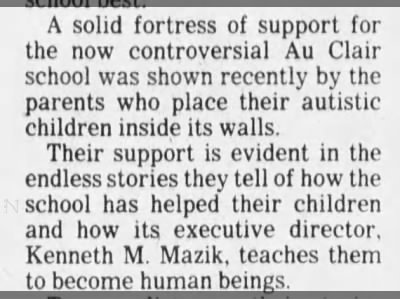 When Claire and Ken opened Au Clair they chose one particular population with which to work - those diagnosed with Kanner's Syndrome - which the Mazik described as the most severe form of autism, the children no other facility wanted. These children were his niche. And for his families, he was their savior.
When Claire and Ken opened Au Clair they chose one particular population with which to work - those diagnosed with Kanner's Syndrome - which the Mazik described as the most severe form of autism, the children no other facility wanted. These children were his niche. And for his families, he was their savior. One New York father told of how Mazik had found his son in another facility, "crouching in the corner of a bathroom." He was naked and covered and feces. In his son's 10 years at Au Clair the father had never found any sign that his child had been beaten or abused. The father was so impressed that he was already taking steps to move from his home state to Middletown, Delaware.
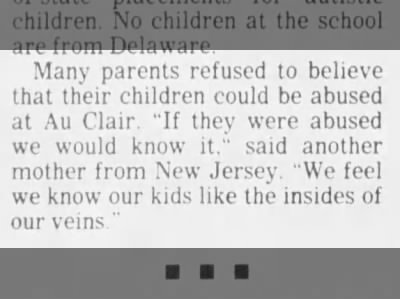 Other stories were more complicated, but gained the same support for Mazik and Au Clair. And each worried about how Delaware's report would affect their own state's view of Au Clair. Would the subsidies stop coming as had happened in New York 1978?
Other stories were more complicated, but gained the same support for Mazik and Au Clair. And each worried about how Delaware's report would affect their own state's view of Au Clair. Would the subsidies stop coming as had happened in New York 1978? One of the more surprising supporters was autism advocate Sheridan Neimark, former director of the National Society of Autistic Children, whose own son lived at Au Clair.
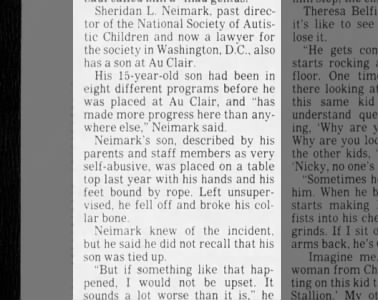
One after another, parents shared their experiences with her children and attributed successes to Au Clair:
And another:
Several parents questioned the report, especially the fact that they were not contacted when investigators substantiated abuse. Shouldn't the state have notified them that their children were in harms way? Delaware hadn't reach out to them at all, even though these parents believed knew Au Clair much better than the bureaucracy that was attempting to regulate the school.
Regardless, Au Clair was the end of a long search for many families, despite the aversives and plateaus, because Mazik had offered them something far better than they'd found elsewhere - hope. And hope is almost as good as home.
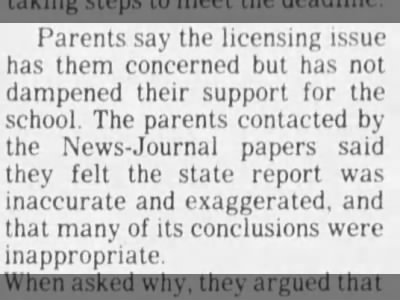
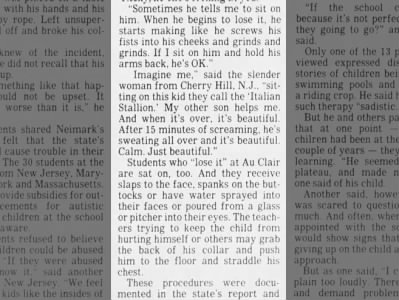
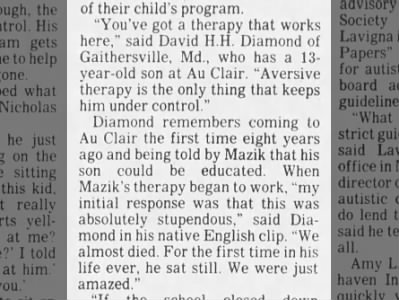






0 comments:
Post a Comment
Word Verification May Be Case Sensitive